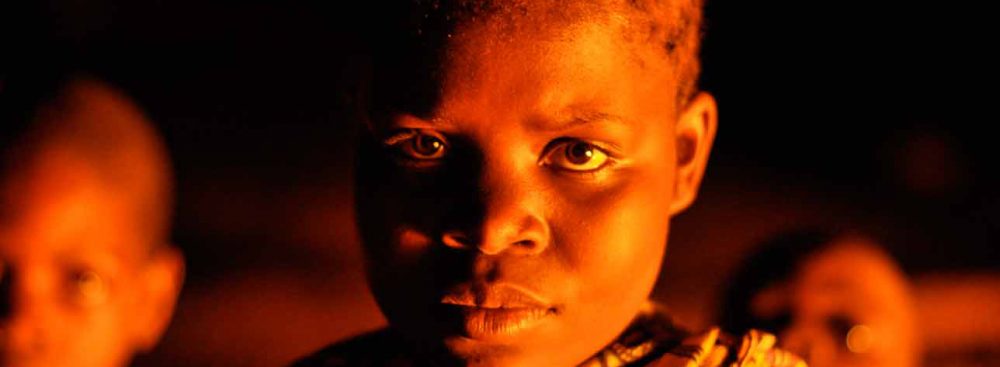
I have just finished a review of Thomas Turner’s book ‘Congo’ that will be published as a slightly different and edited version. Turner is an American academic who works as a DRC country specialist for Amnesty International. He has taught in Congolese, Rwandan and Kenyan Universities and is married to a Congolese. It is probably this mix of academic background, relevant research experience and special ties to the region that enabled him to write this comprehensive yet compact and accessible book. Excellently researched and well-written, the text comes with many advantages, but none of the disadvantages of its academic peers. I recommend it as a substantial but digestible introduction for everyone working in and on the country that also offers a large number of facts and interesting reflections to those that are more familiar with it.
The chapters are organized along the lines of the most pressing issues – resources, identity, sexual violence and external involvement – yet their analysis is far from simplistic and goes beyond the usual headlines. The author skilfully draws from a substantial knowledge of the country’s different historical periods, from pre-colonial times to the Congo Free State and Zaire, to ask the right questions. He wonders, for instance, how the exploitive Belgian regime relates to Mobutu’s dictatorship and the status quo. But Turner also convinces with the way he makes his arguments: Instead of giving simple answers, he carefully balances the work of other scholars to make sense of complex realities. So when responding to the above question, Turner refrains from establishing direct causal links and instead summarizes psychological, structural, traditional and economic explanations for the persistence of structural and physical violence in the country. The particularly captivating concept of a ‘chosen trauma’ by psychoanalyst Vamik Volkan is, for instance, introduced to explain the trans-generational transmission of memory and behaviour. According to Volkan “trauma tends to generate or reinforce a political ideology of entitlement to violence” (p.135), which leads subsequent generations to respond to the pain and humiliations of the past. Through oversimplifications of the violent events, each side denies the chosen trauma of the other and instead focuses on their own victimhood, as it is tragically the case with Hutu and Tutsi.
The idea of Congo as “a playing field” for powerful Western states as well as its African neighbours, particularly during the ‘Congo Wars’, is developed over two chapters. While the analysis of western hegemony in Congo is painted in classical realist terms, the games of pawns and proxies are presented more complex in the intra-African context as “central African states are dependent on the more powerful” to advance their interests (p.72). When reflecting on the violence of the two Congo wars, Turner highlights “the number game” stating that “the topics of “mass deaths and mass rapes have generated international controversies, pitting researchers and humanitarian activists against each other” (p.212). Many readers will be familiar with the contested estimation by the International Rescue Committee (IRC) of five million war related deaths in Congo between 1998 and 2008. In a similar vein, a 2011 article published in the American Journal of Public Health estimated the number of rapes at 48 per hour. Turner holds that it is undisputed that too many people have died from hunger or disease and that the number and style of rapes have taken horrendous forms. But he also clarifies that these numbers have severe flaws given the absence of population statistics, the generalization of limited data and the interests of beneficiaries and aid agencies.
In another chapter, Turner explains how identity factors such as ethnicity, language and religion have been developed and reinforced through colonial favouritism and subsequently used by Congolese politicians to play different groups against each other (e.g. Mobutu) and gain electoral advantages (e.g. Bemba). After describing the dynamics between autochtones and allochtones in Katanga and the Kivus, Turner highlights the striking absence of class in Congolese analysis and policy-making despite the Marxist background of many Congolese intellectuals. He suggests that Congo’s Ethno-nationalism obscures questions of landownership and control over the means of production. This remark is typical for the book in so far as it demonstrates great understanding of the Congolese context, while also bringing in new perspectives. It is thus unsurprising that Turner ends on the important question of who will be protecting Congolese civilians. In the last chapter he examines the interaction between protection norms and practices, and draws a grim picture of the future. While clearly outlining the failure of the international community to bring change to Congo, the author also highlights the responsibility of the Congolese. Going beyond the standard and somewhat empty wisdom that the protection of civilians primarily is the responsibility of the Congolese state, Turner writes that “they will have to stop promoting the “myth of the yoke”, according to which all their problems come from outside, even though this myth is partly valid” (p.204). Having heard many similar stories about how the Rwandans are responsible for the current economic, political and social situation, and/or how peacekeepers are not doing there job, I full agree to this. To be sure, it is not a question of blaming my Congolese friends into being passive. Taking action in this context is easy said from the outside but difficult to implement from within. Rather, the idea is to nuance discourses on responsibility so that claiming protection or accountability from officials becomes conceivable for ordinary people.
